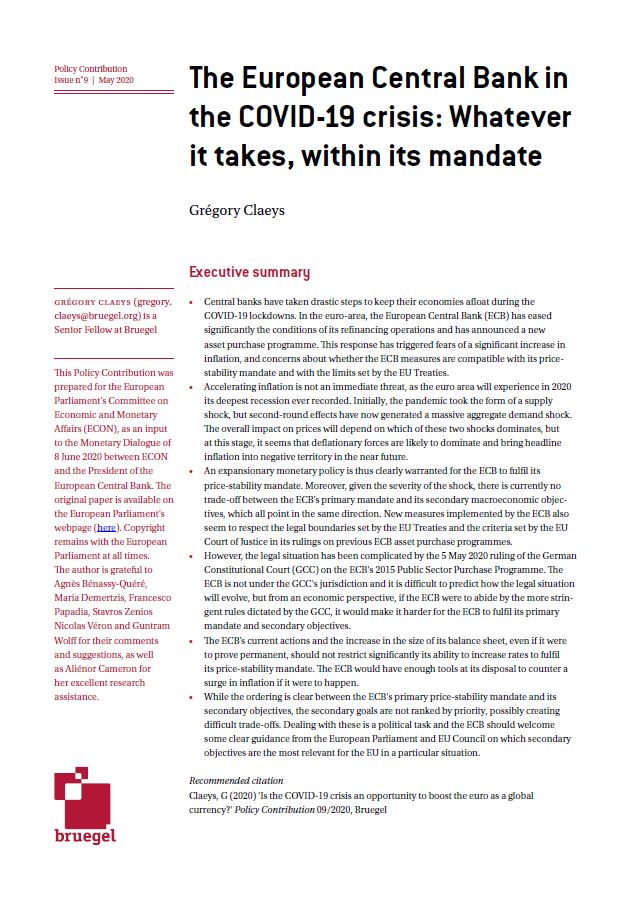Opinion

The weakness of average inflation targeting
Introducing average over time without defining what this means is counterproductive and current levels of inflation in the US will sooner or later expose this weakness in the Fed’s new strategy.
Opinion

Introducing average over time without defining what this means is counterproductive and current levels of inflation in the US will sooner or later expose this weakness in the Fed’s new strategy.
Podcast
An overview of economic policy and beyond in 2021.
Blog Post






A selection of charts from Bruegel’s weekly newsletter, analysis of the year and what it meant for the economy in Europe and the world.
Blog Post

Between 2007 and 2020, the balance sheets of the European Central Bank, the Bank of Japan, and the Fed have all increased about sevenfold. But inflation stayed low throughout the 2010s. This was possible due to decreasing money velocity and the money multiplier. However, a continuation of asset purchasing programs by central banks involves the risk of higher inflation and fiscal dominance.
Blog Post


COVID-19 has complicated inflation measurement. Policymakers need to take this into account and should look at alternative measures of inflation to understand what is actually happening in the economy.
Past Event

Online event organised in the framework of MICROPROD, a research project to improve our understanding of productivity, its drivers and the way we measure it.
Blog Post

Ongoing fiscal support in the United States is not expected to provoke inflation risks. There are no immediate inflationary risks in the euro area either.
Past Event

The ECB is reviewing its monetary policy strategy. How to ensure monetary policy is fit for purpose in a fast changing world?
Opinion

The announcement of a large stimulus without a growth target indicates that China’s recovery is far from complete.
Policy Contribution


To keep the euro-area economy afloat, the European Central Bank has put in place a large number of measures since the beginning of the COVID-19 crisis. This response has triggered fears of a future increase in inflation. However, the ECB's new measures and the resulting increase in the size of its balance sheet, even if it were to be permanent, should not restrict its ability to achieve its price-stability mandate, within its legal obligations.
Opinion

This opinion piece was originally published in Asia Times and Medium China’s GDP in the first quarter of the year has surprised nobody but the devil is in the details. Local retail sales continued to fall in March (-16%), marginally better than during the peak of the Covid19 outbreak in January and February. The continuation […]
Blog Post


The implementation of a Derivative Market Programme could reaffirm the ECB’s credibility and strong commitment to price stability.